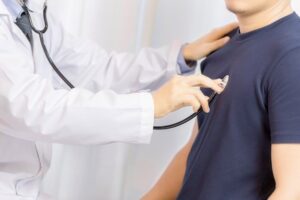Tips for Dental Care and Oral Hygiene

Proper dental care should begin at a young age. But anytime you begin to take proper care of your teeth and gums is better than continuing with no proper dental care routine at all. You can prevent minor and major oral health issues to a large extent with a good dental care routine.
Consider these tips for dental care and oral hygiene.
Choose a good dentist.
Yes, the foremost tip is to choose a qualified and licensed dentist in your local area. Lack of regular dental cleaning and checkups is a major reason for serious oral problems. Your dentist can also recommend the right products, brushing techniques, and treatments to keep your teeth shiny and the gums healthy.
Use keywords such as dental care McLean (or your own area) to find clinics in your town or city. Check the clinic websites to know more about the dentist and the treatments on offer. You can choose one based on your own and your family’s needs. Follow your dentist’s recommendations for yearly or bi-annual visits.
When faced with a chipped tooth, dental pain, or bleeding gums; don’t delay seeing your dentist. Immediate treatment can prevent tooth loss and help you avoid nasty infections.
If you suffer from diabetes, heart disease, or are undergoing cancer treatment then your dentist’s support can be invaluable. These conditions can impact oral health. Dental diseases, in turn, can impact your heart and health by transferring the germs to organs via blood.
Brush Well and Enough
If you don’t brush your teeth well and for at least two minutes; it is unlikely that they will be thoroughly clean. Your dentist is likely to tell you the proper way to brush. An up and down motion holding the brush at a 45-degree angle is often recommended by dental care experts. Your dentist may suggest the best technique depending on the state of your teeth and gums.
Your dentist can also offer suggestions for the right type of brush and toothpaste to use. If the recommendation for you is to use a toothpaste containing fluoride then use one. Fluoride is essential to prevent tooth decay.
The brushing routine should end with giving the tongue a good scrape with the brush or a tongue-cleaner (if your dentist recommends one).
Floss and Rinse
Oral care is incomplete without flossing. Most people only floss when there is the need to remove food particles from between the teeth. But flossing can also remove tiny food particles that don’t really irritate but can harm your oral health. You will only notice them when you remove them from between the teeth by flossing.
It is also important to gargle well with plain water and mouthwash – separately. It is imperative to rinse the mouth properly with plain water after you eat or drink anything sweet or acidic and of course after every meal. You can also use mouthwashes to reduce acid buildup inside the mouth. Use it once or twice a day as needed.
Eat the Right Foods
Sugary foods and drinks are not right for good oral health. So, reduce their intake. Include crunchy vegetables in your meals. Hard foods such as raw vegetables help exercise the gums. They also don’t contain any harmful substances for your oral health.
Limit the intake of tea, coffee, and acidic fruit juices. These beverages can slowly strip your tooth of its enamel coating. Sugar also coverts into its acidic form inside the mouth; hence increasing the risk of cavities. Tobacco can also severely harm your teeth. Yellowing of teeth is a major issue in those who smoke a lot or consume tobacco in other forms. Smoking can also weaken the jawbone.
If you wear braces, dentures, or have bridges or crowns then eat hard food with caution. Follow your dentist’s recommendations about the right kinds of food for you.
Take Charge of Your Oral Health
Regular oral care can keep your teeth and gums healthy for sure. So, be mindful of not missing dental appointments. Ensure that you ask your dentist to explain the procedures well before opting for one. It will help you make an informed decision about your oral health.


